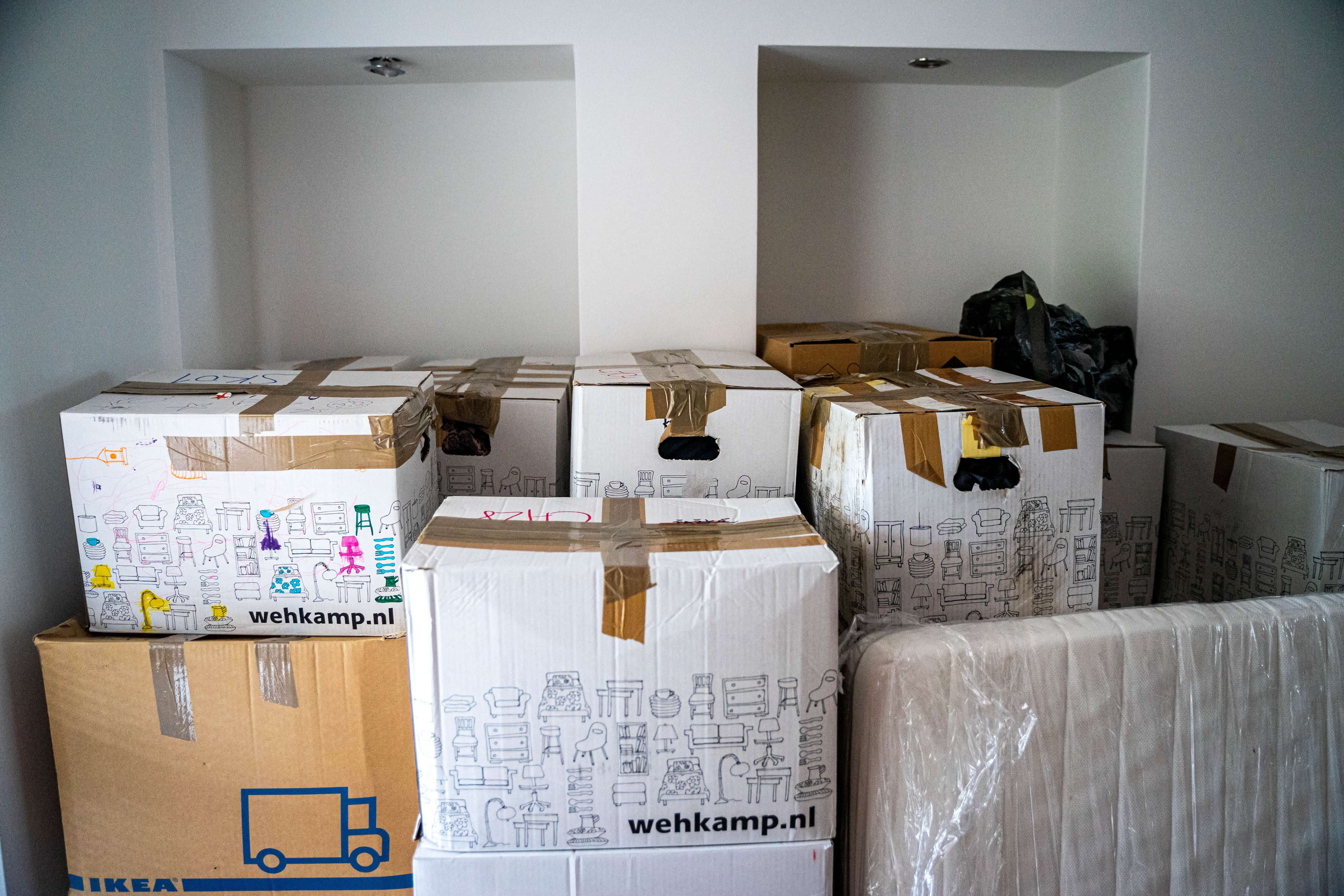Is It A Good Idea To Move If I'm Addicted?

Can I Move Into A New Home Or Apartment If I Have An Addiction?

Moving can be a big decision, and when you are struggling with addiction, it can be an even bigger challenge. Addiction is a complex and chronic disease that requires a lot of support and effort to overcome. So, is it a good idea to move if you're addicted? The answer is not a simple one, as it depends on various factors.
One of the first steps towards overcoming addiction is assessing the environment you are currently in. Here are some examples of how this can be done:
Identify triggers
Take the time to identify what triggers your addictive behavior. This could be a certain location, person, or situation that causes you to engage in substance abuse or other harmful behaviors.
Change your location
If your current environment is a trigger for your addiction, it may be beneficial to move to a new area. For example, if you live in a neighborhood where drugs or alcohol are easily accessible, moving to a new location where those substances are less available can reduce the temptation to use.
Seek support
Surrounding yourself with supportive people can also help you overcome your addiction. Consider joining a support group or reaching out to friends and family members who can provide encouragement and accountability.
By taking these steps, you can create an environment that is less conducive to addiction and increase your chances of achieving long-term recovery.
Furthermore, if your current location is surrounded by negative influences, such as peers who encourage you to use drugs or alcohol, moving away from them could have a positive impact on your recovery. It's important to surround yourself with people who support your sobriety and are invested in your wellbeing.
On the other hand, the idea of moving can also be stressful and can disrupt the routine and support system you have in place. If you have a strong support system in your current location, such as a sponsor, therapist, or sober living community, it may not be the best idea to move away from them. Losing that support can make it more challenging to maintain your sobriety.
Finding a New Support System in the New Location
Moving to a new location can be an opportunity to start fresh and build a new support system. Here are some examples of how this can be done:
Research local resources
Before making the move, take the time to research the resources available in the new area. This could include 12-step meetings, recovery groups, therapists, and treatment centers.
Attend local meetings
One way to find local support is by attending 12-step meetings or other recovery groups. These groups can provide a sense of community and accountability, as well as connections to local resources such as therapists and treatment centers.
Seek out therapy
Another option is to seek out therapy or counseling services in the new area. A therapist can provide individualized support and guidance through the recovery process, helping you develop coping skills and strategies for maintaining sobriety.
Ask for recommendations
If you're unsure where to start, consider reaching out to national helplines or treatment centers for recommendations on local resources. Additionally, online forums and social media groups can be a helpful way to connect with others in recovery who live in the new area.
By taking these steps to proactively build a support system before moving, you can increase your chances of success in overcoming addiction and maintaining long-term recovery. It's important to remember that building a support system takes time and effort, but the rewards of sobriety are worth it.
Understanding Laws and Regulations in the New Location
Before making a move, it's important to research the laws and regulations around addiction recovery in the new location. Different states and countries have different regulations regarding treatment options, insurance coverage, and support services for those struggling with addiction.
The availability of addiction treatment and resources can vary depending on the location. Here are some examples of how this can be done:
Check insurance coverage
Some states have laws that require insurance companies to cover addiction treatment, while others do not. This could impact your ability to access certain types of treatment or therapy. Before moving, check the insurance coverage requirements in the new location to ensure that you will have access to the care you need.
Research local resources
Some areas may have more resources available than others. For example, certain regions may have more access to medication-assisted treatment or specialized support groups. Research the availability of these resources in the new area to ensure that you will have access to the care and support you need.
Consider transportation
The location of treatment centers and support groups can also impact your ability to access care. If you do not have reliable transportation, it may be more difficult to attend appointments or meetings. Consider the proximity of these resources when selecting a new location.
By considering these factors, you can make an informed decision about where to live based on your needs for addiction treatment and recovery support.
By understanding the laws and regulations in the new location, you can better prepare yourself for what to expect when seeking help for addiction recovery. This information can also be helpful when working with insurance companies or healthcare providers to ensure you receive the care you need.
It's important to note that researching laws and regulations around addiction recovery can be complex and time-consuming. Consider reaching out to local organizations or advocacy groups for guidance on navigating these systems. With the right support and information, you can make an informed decision about whether moving is the right choice for your recovery journey.
Involving Family Members or Loved Ones in the Decision-Making Process

When it comes to making a decision about whether to move for addiction recovery, involving family members or loved ones can have several benefits. Here are some examples:
Emotional Support
Family members or loved ones can provide emotional support during the recovery process. By including them in the decision-making process, you can ensure that everyone is on the same page and has a clear understanding of what to expect.
Accountability
Involving family members or loved ones in the decision-making process can also increase accountability. When others are aware of your goals and intentions, they can help keep you motivated and on track.
Safety
Moving to a new location for addiction recovery can be risky if you do not have a strong support system in place. By involving family members or loved ones, you can ensure that safety measures are put in place to prevent relapse and protect your wellbeing.
New Beginnings
Finally, involving family members or loved ones in the decision-making process can create an opportunity for new beginnings. It allows everyone involved to work together towards a common goal and build stronger relationships based on trust and mutual support.
However, it's important to note that not everyone may be supportive of the decision to move. Addiction is often accompanied by strained relationships, and some family members or loved ones may not understand the complexities of recovery. In this case, it may be helpful to involve a therapist or counselor who specializes in addiction recovery to facilitate communication and provide guidance through this challenging time.
Overall, involving family members or loved ones in the decision-making process can have many benefits when considering a move for addiction recovery. It's important to approach these conversations with empathy, honesty, and an open mind to ensure that everyone's needs are heard and respected.
Ways to Prepare for a Move While Maintaining Sobriety

Moving can be a stressful and anxiety-inducing process, particularly for those in recovery from addiction. Here are some tips on how to prepare for a move while maintaining sobriety:
Plan Ahead
Planning ahead is key when it comes to preparing for a move while maintaining sobriety. Create a timeline of tasks and deadlines to help you stay organized and avoid feeling overwhelmed. It's also important to give yourself plenty of time to pack, clean, and make arrangements for the move.
Stay Connected
Maintaining connections with your support system is crucial during the moving process. Make sure you have regular check-ins with your sponsor, therapist, or support group members. If you're moving out of the area, consider setting up virtual meetings or finding new support in your new location.
Practice Self-Care
Moving can take a toll on mental health, especially for those in recovery from addiction. Be sure to prioritize self-care during this time by getting enough sleep, eating well, and engaging in activities that bring you joy and relaxation.
Avoid Triggers
Moving may introduce new triggers or exacerbate existing ones. Take steps to avoid triggers by avoiding situations that could lead to relapse. For example, if packing up your old home brings up difficult emotions or memories, take breaks as needed or ask someone else to help with packing.
Consider Professional Help
If you're feeling overwhelmed by the moving process or struggling with anxiety and stress, consider seeking professional help. A therapist can provide guidance on managing stress and coping with difficult emotions during this transition period.
By following these tips, you can prepare for a move while maintaining sobriety and minimizing the risk of relapse. Remember that it's okay to ask for help when needed and prioritize self-care during this challenging time.
The financial costs of addiction treatment and moving can be significant
Here are some examples of how this can be done:
Evaluate treatment costs
Addiction treatment can be expensive, and the cost can vary depending on the type and duration of care needed. Before moving, research the cost of treatment in the new area and consider whether it is affordable for you.
Consider travel expenses
Moving to a new location may also add additional costs, such as travel expenses or temporary housing while you get settled. Evaluate these costs and determine whether they fit within your budget.
Look for financial assistance
If you are concerned about the cost of addiction treatment, look for financial assistance programs that may be available. Some treatment centers offer sliding scale fees or financial aid to help make treatment more affordable.
By considering the financial implications of moving before making any decisions, you can ensure that you are able to access the care and support you need without incurring excessive financial burden.
FAQs
Q: Is moving to a new location the only way to overcome addiction?
A: No, moving to a new location is not the only solution for overcoming addiction. It can be helpful in certain situations, but it's important to consider all options and consult with a healthcare professional or addiction specialist before making any decisions.
Q: Will I lose my support system if I move to a new location?
A: Moving to a new location can disrupt your current support system, but it also provides an opportunity to build a new one. Before making any decisions, research local resources and attend meetings or groups in the new area to begin building connections. Additionally, virtual meetings and online forums can help you stay connected with your existing support system even if you're living in a different location.
Q: How do I know if moving is the right choice for me?
A: The decision to move for addiction recovery should be made on an individual basis and should take into account various factors such as access to treatment, availability of local resources, financial considerations, and personal preferences. It's important to weigh the pros and cons carefully and consult with a healthcare professional or addiction specialist before making any decisions.
Q: What are some ways that family members or loved ones can provide support during the moving process?
A: Family members or loved ones can provide emotional support, help with packing and organizing, assist with finding local resources in the new area, and offer accountability during the recovery process. It's important to communicate openly and honestly about expectations and needs throughout this process.
Q: How can I manage stress during the moving process while maintaining sobriety?
A: Moving can be stressful even under normal circumstances, so it's important to prioritize self-care during this time. This includes getting enough sleep, eating well, engaging in relaxation activities like meditation or yoga, staying connected with your support system, avoiding triggers when possible, and seeking professional help if needed. Planning ahead and breaking tasks down into manageable steps can also help reduce stress.
Conclusion
Moving can be both beneficial and detrimental to addiction recovery, depending on the individual circumstances. If the current environment is a trigger for addiction or surrounded by negative influences, moving to a new location can be helpful. However, it's important to consider the financial implications, the support system you have in place, and the availability of resources in the new location. Ultimately, the decision to move should be made with the guidance of a healthcare professional or addiction specialist.
Sources:
- National Institute on Drug Abuse. (2020). Treatment and Recovery. Retrieved from https://www.drugabuse.gov/publications/drugs-brains-behavior-science-addiction/treatment-recovery
- Substance Abuse and Mental Health Services Administration. (n.d.). Finding Quality Treatment for Substance Use Disorders. Retrieved from https://www.samhsa.gov/find-help/treatment
